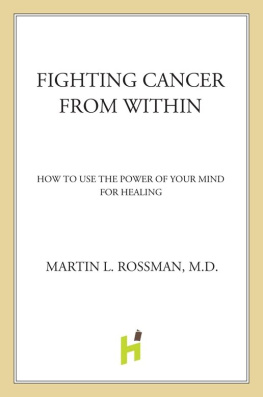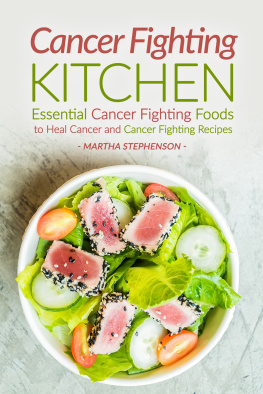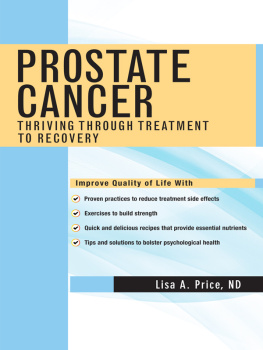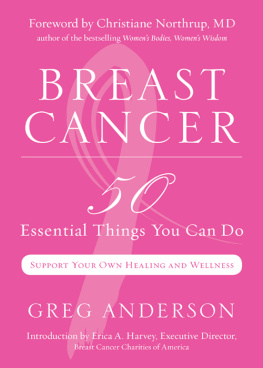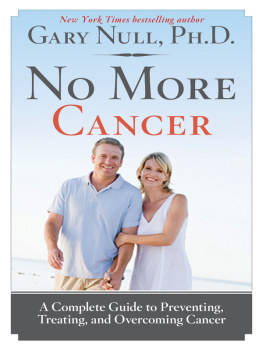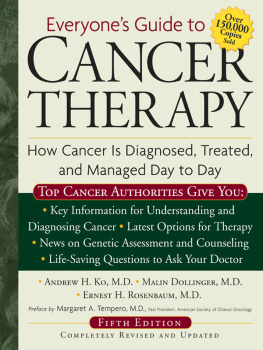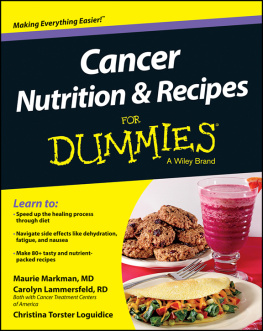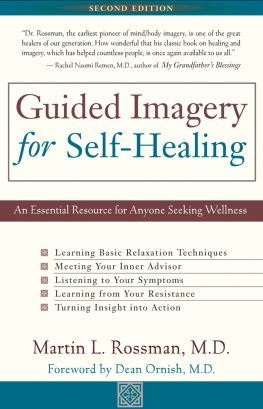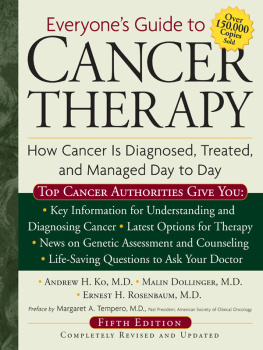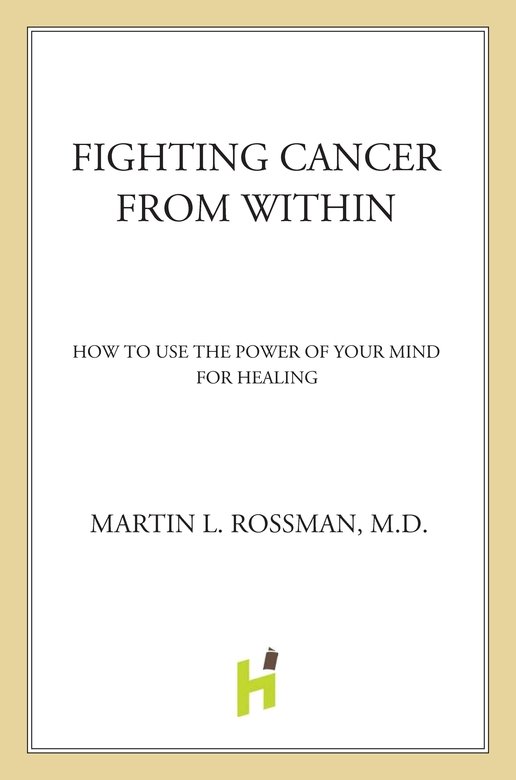Dr. Martin L. Rossman - Fighting Cancer From Within: How to Use the Power of Your Mind For Healing
Here you can read online Dr. Martin L. Rossman - Fighting Cancer From Within: How to Use the Power of Your Mind For Healing full text of the book (entire story) in english for free. Download pdf and epub, get meaning, cover and reviews about this ebook. year: 2003, publisher: Henry Holt and Co., genre: Home and family. Description of the work, (preface) as well as reviews are available. Best literature library LitArk.com created for fans of good reading and offers a wide selection of genres:
Romance novel
Science fiction
Adventure
Detective
Science
History
Home and family
Prose
Art
Politics
Computer
Non-fiction
Religion
Business
Children
Humor
Choose a favorite category and find really read worthwhile books. Enjoy immersion in the world of imagination, feel the emotions of the characters or learn something new for yourself, make an fascinating discovery.
- Book:Fighting Cancer From Within: How to Use the Power of Your Mind For Healing
- Author:
- Publisher:Henry Holt and Co.
- Genre:
- Year:2003
- Rating:4 / 5
- Favourites:Add to favourites
- Your mark:
Fighting Cancer From Within: How to Use the Power of Your Mind For Healing: summary, description and annotation
We offer to read an annotation, description, summary or preface (depends on what the author of the book "Fighting Cancer From Within: How to Use the Power of Your Mind For Healing" wrote himself). If you haven't found the necessary information about the book — write in the comments, we will try to find it.
A breakthrough guide for cancer patients on using the mind to treat the body, from a pioneer incomplementary medicine
Recent research has shown that the mind can make a tremendous difference in not only the daily experience of living with cancer but also in the potential for overcoming it.
In this groundbreaking book, Dr. Martin L. Rossman-hailed as one of the greatest healers of our generation by Rachel Naomi Remen-shows cancer patients how to use imagery in specific ways that can help them in their fight against cancer.
Imagery is a natural, efficient way of storing and processing information, and one that has powerful effects on both emotional states and physiology. And while imagery is not a substitute for medical, surgical, or other physical approaches to cancer therapy, scientific studies have proven that it complements and enhances those treatments in many important ways. In this first book of its kind, Rossman provides specific ways to use imaging in fighting cancer.
Praise for Guided Imagery for Self-Healing:
This superb collection of imagery techniques is a landmark
contribution to the emerging field of behavioral medicine. -Joan Borysenko, Ph.D., author of Minding the Body, Mending the Mind
Dr. Martin L. Rossman: author's other books
Who wrote Fighting Cancer From Within: How to Use the Power of Your Mind For Healing? Find out the surname, the name of the author of the book and a list of all author's works by series.

